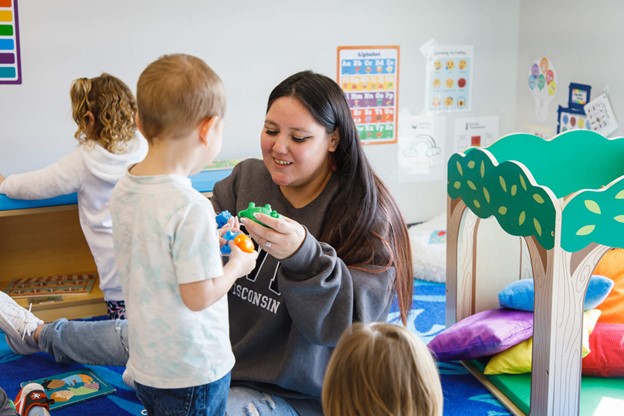Childcare As a Global Economic and Workforce Development Issue
By Sara Mackey, Marketing Communications Specialist
 The challenge for parents of finding safe, reliable childcare is not new. However, the pandemic helped expose the drastic need for solutions to this matter that profoundly impacts the economy. Since most households are accustomed to having two income earners, it is tough for parents to consider giving up one income to spend less on childcare. In families with a lower-income earner or one or more parents without a degree, that decision might be easier to justify economically. Still, it’s neither an easy option nor one without compromise.
The challenge for parents of finding safe, reliable childcare is not new. However, the pandemic helped expose the drastic need for solutions to this matter that profoundly impacts the economy. Since most households are accustomed to having two income earners, it is tough for parents to consider giving up one income to spend less on childcare. In families with a lower-income earner or one or more parents without a degree, that decision might be easier to justify economically. Still, it’s neither an easy option nor one without compromise.
Like healthcare, childcare can be worth paying more for, as it is highly valued and thus considered an investment in a child’s well-being. It also helps keep employers’ productivity up, benefitting the economy. Childcare is becoming as much an infrastructure issue as roads and bridges because families without childcare are not as likely to get to work and stay at work, making it an equally important potential investment for employers and employees.
Similarly, childcare is also necessary to allow men, especially women, who want to improve their skills and knowledge by attending college or adding a certification in hopes of enhancing their career potential. Besides providing paid leave or childcare subsidies, employers could support working parents in several creative ways. In-house childcare is obviously one option, but partnering with a childcare facility to cover some of their operating expenses is too. Hence, the cost of running the business requires less overhead passed on to parents. Some companies help by finding /affording quality programs for children with special physiological needs.
In addition to improving employers’ productivity, it could be seen as a vital benefit that will encourage longevity among would-be or current parents needing childcare and make employers stand out among competing employers.
It’s one thing for parents to have a primary option for childcare. Still, the pandemic showed working parents that they also need a backup option for when the primary caregiver is unavailable or not an option or school is called off for public health concerns. Parents freed up from constant worry about their children’s safety and well-being tend to be more content, better employees, and a payoff to employers.

Photo credit: Northeast Wisconsin Technical College




 This post is locked to comments.
This post is locked to comments.
